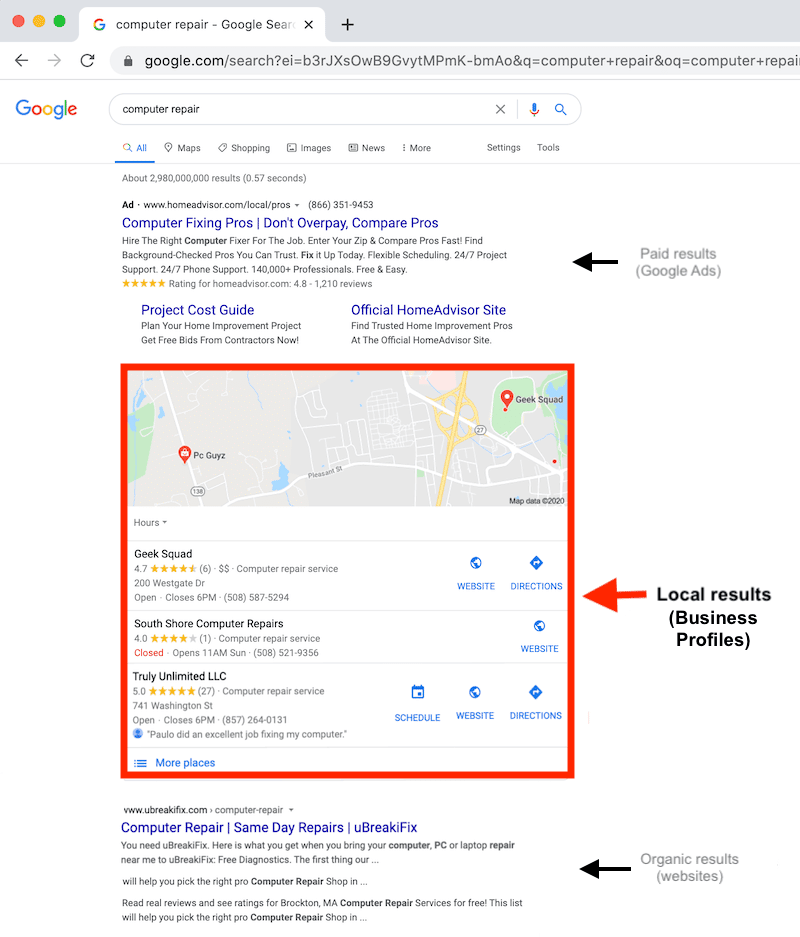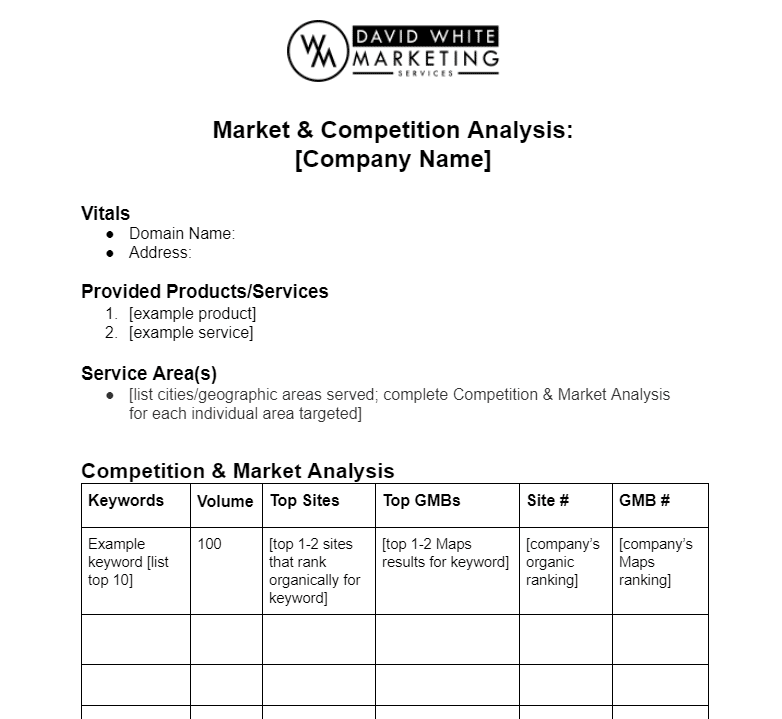In our last post, we discussed the three key factors that go into choosing the best keywords for your SEO strategy, namely, search volume, competitiveness, and profitability. Today we are looking at another important tool we use when crafting keyword strategies: a Market Competition Analysis. Read on or watch the video below to learn how we implement this key step in SEO planning:
***
As a brief recap of what we covered previously, the three factors that will go into choosing your keywords are search volume (how many individual searches for that word), competitiveness (how easy or difficult will it be to rank for that word), and profitability (what’s the expected revenue outcome for ranking high for that word). Be sure to read our last post and watch the video to get the full breakdown.
Today, we are looking at a real-world example from a customer we worked with on SEO strategy using a tool called a Market Competition Analysis.
Why Does it Matter?
This Market Analysis template that we use for each and every customer we work with on SEO involves in-depth data and analysis to give us an accurate assessment of the scenario that customer is facing in trying to improve their SEO. Having this data and this clear picture of the market and competition is what will allow us to strategize for the best ways to move the needle for our customer.
Remember, ranking high in Google organic search results is extremely valuable, and even incremental improvements can be helpful. So getting as much data as we can upfront is only going to ensure greater success in the long run.
What’s the Approach?
In our example from the video, which was a real estate agent, we conducted an analysis of the customer’s organic Google search rankings and their Google Maps or Google My Business rankings. The screenshot below shows what the Google My Business rankings look like visually for your reference:

Knowing where you rank on Google My Business as well as organic results is important because around 40% of clicks can potentially come through this section. The value of ranking on Google My Business is why finding exactly the right keywords to optimize for, as we discussed in our last post, is so important.
As we put together the Market Analysis, we brainstorm with the customer to define the best keywords that describe their business and that will be relevant in Google searches. For the example of our real estate agent customer, those were “real estate agent,” “real estate broker,” “homes for sale,” and “realtor,” among a few others. Then we use tools such as Google Keyword Planner, AHRefs, and Google Analytics to find the search volume for those words and which sites currently rank at the top of those searches for the customer’s city or geographic area.

How Do We Implement It?
In our real estate agent example, we found that there was greater search volume for “real estate agent” vs. “real estate broker” in the customer’s area, which can make a difference in how this customer’s site could rank and helps us make a decision when planning written content for the website.
The next part of this process is looking at how your website already competes with other sites. The best way to do this is actually just to check manually. Open an incognito window so that your personal web history won’t influence the search results, Google the keyword in question, and scroll through the results to see where your site currently ranks, along with who the top sites are for the keyword. If you already recognize any of the top ranking sites, then you’ll already be able to start to get an idea of the competition you’re facing.
One thing to note: when analyzing keywords, remember that search volume isn’t all that matters! You also want to look at how profitable a keyword is to accurately assess how valuable it will be to rank for that keyword.
In Summary
Our free Market Analysis tool is available here, and we hope you find it helpful!
If you want to learn more about our SEO keyword strategies, or are just looking for someone to help out with digital marketing in general, we would be more than happy to help! Just give us a call at (253) 224-4891 or send an email to [email protected].
